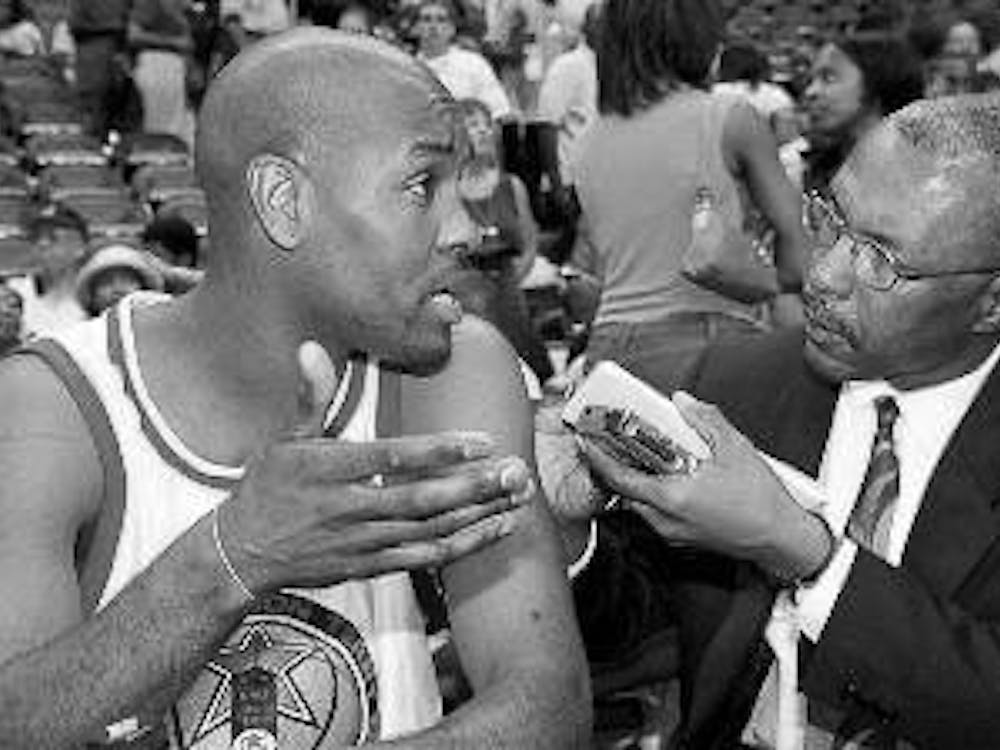Imagine yourself scrolling through TikTok and finding out that the Cheerios you eat every morning are slowly killing your gut microbiome, seed oils are causing inflammation and that quinoa is a poverty-level peasant food spawned by misinformed radical vegans.
While this may sound alarming, never fear because the "holistic nutritionist” claims that a multi-day juice cleanse, a 1,200 calorie deficit or consuming only raw milk and red meat is the perfect liver detoxing and gut healing diet you will ever need.
Does this sound familiar? Influencers on social media apps such as TikTok and Instagram are spreading misinformation about nutrition and instilling fear into the lives of consumers. Their promotion of “diet culture” encourages food restriction, idealization of thinness, glorification of weight loss and stigmatization of certain body types through their persistent guilt-inducing messages.
A systematic review published by the National Library of Medicine concluded that 48.8% of the quality and 48.9% of the accuracy of nutrition-related information were low across various social media websites. The study also concluded that information related to weight loss or supplements received a larger proportion of false information and inaccuracy compared to other topics.
Dr. Paul Branscum, a professor in the Kinesiology, Nutrition and Health Department at Miami University with a doctor of philosophy degree in health promotion and education, teaches topics related to public health behavior change and nutrition. He said how the misinformation about nutrition on social media affects college students, particularly those with nutritional goals.
“Achieving specific diet-related goals, such as gaining muscle mass, will be a very difficult endeavor,” Branscum said. “So if a social media influencer says something you want to hear, you are more willing to listen and accept it without actually verifying or fact-checking the information.”
TikTok’s algorithm-driven content prioritizes short, engaging videos filled with buzzwords, eye-catching infographics and emotionally related content, allowing influencers to forsake evidence and credibility for views. This undermines the trust in public health professionals and science-backed interventions.
“The question becomes, ‘How accessible professionals, such as your primary care physician or dietitian, are?’” Branscum said. “The internet is often in our backpockets, and if we are hearing information we want to hear very easily, it can become rewarding very quickly; this will allow us to ignore seeking professional advice.”
Virginia Willard, the vice president of the Student Academy of Nutrition and Dietetics on campus, is a nutritional educator for Talawanda’s Oxford Pantry & Social Services. She provides nutritionally backed information on her Instagram, @simplyhealthywith_v, and explains how students idolize influencers on social media.
“I educated students on fitness during a debunking food myths event at the seal, and it was shocking how many students fall for misinformation on social media,” Willard said. “For example, students actively wash their poultry, which spreads bacteria, adopt fad diets such as the keto diet or restrict their carb intake while actively trying to gain muscle mass.”
Willard also said the number of followers or views a creator has can create a false sense of credibility.
“Students will blindly follow someone who spreads myths about gluten, dairy or the consumption of sugar just because they have a large following, thinking that if the influencer is restricting certain food groups from their diet, they should too,” Willard said. “However, you should treat nutrition as a personal thing; it's a personal plan.”
Enjoy what you're reading?
Signup for our newsletter
It’s appalling how frequently exclusion diets and detoxes promote unrealistic, hypothetical, magical transformations that are ultimately unachievable, leading only to a continued sense of failure and dissatisfaction. Growing up in a digitized world, I often found myself falling for false promises and disordered eating plans that led to continued mental stress and guilt.
So, how can we stay safe from all the misinformation circulating in the media?
Willard said she advises students to actively look for keywords such as dietitian, or Registered Dietitian Nutritionist (RDN), who are recognized medical professionals whereas nutritionists are a self-proclaimed title. She also recommends students utilize the resources offered on campus, such as the weekly Lunch and Learns in Phillips Hall from noon to 1 p.m. or through consultations with the campus dietitians.
Branscum said there are multiple options and ways for students to accomplish their goals.
“The best way to achieve nutritional goals, such as weight loss, is to find a method that works for you,” Branscum said. “And if you are having a hard time finding that through your lifestyle, it is beneficial to try different methods: seeking support systems, professional help or surgical and medical options. There are a lot of options out there, so it is important to do your homework and research.”
I wish I could tell younger me that the promotion of diet culture was not worth my time or energy, but only caused restrictive eating habits and poor mental health. Our media is saturated with harmful dietary choices and eating behaviors, so it is important to learn how to avoid these false perceptions of health.
Remember – if you are ever struggling with nutrition, it is always okay to seek out professional help or someone you trust.
Maria Buzogany is a junior triple majoring in philosophy, political science and public health. She is an opinion writer for The Miami Student, as well as a member of Associated Student Government, Miami Striders Running Club and the Humanities Student Collective.




